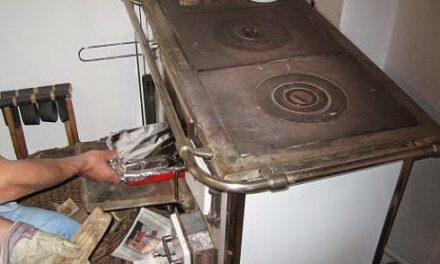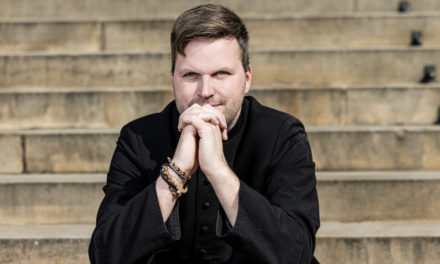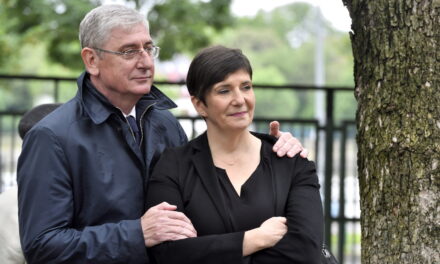So far, Slovakia has not faced the situation of the Prime Minister being on long sick leave.
Robert Fico is a 50-year-old Slovak politician who has been serving as Prime Minister of Slovakia since the fall of 2023. Previously, he was the head of government of the neighboring country from 2006 to 2010 and from 2012 to 2018. On May 15, 2024, around 2:30 p.m., the head of government was seriously injured after being shot several times at close range in Nyitrabány, Slovakia, after a government meeting in front of the city's cultural center. Therefore, he was hospitalized, and a life-saving operation was performed at the Roosevelt Clinic in Béztercebányá.
In connection with the assassination, the 71-year-old poet from Léva, Juraj Cintula, was immediately detained by the police as the primary suspect. After being detained, the man gave a statement to the Slovak news channel TA3. He said that he did not agree with the government's policy (among other things, that Fico would stop arms shipments to Ukraine), which is why he shot the Slovak prime minister.
According to Deputy Prime Minister Tomáš Taraba, Fico was in a "life-threatening" condition after the attack, with injuries to his stomach, arm and leg, but after emergency surgery, his condition - although still serious - has stabilized and is expected to recover.
So far, Slovakia has not faced the situation of the Prime Minister being on long sick leave; although not long after the 2016 elections, Fico underwent an unexpected heart operation, but soon, barely three days after his release from the hospital, he was able to lead the government meeting. In the Slovak constitutional regulations, the Prime Minister is called the President of the Government; the government interpreted it as a collective body that can function even with a missing member, i.e. without the person of the prime minister - but its organization is still incomplete in this case.
The Constitution of the Slovak Republic defines the government as the highest body of executive power in Article 108, and since the government of Slovakia is headed by the Prime Minister, it is organized and operates as a ministerial government system, this operation essentially means a combination of the collegial principle and the monocratic principle from a constitutional point of view.
According to Article 109 (1) of the Constitution, the government consists of the president, vice-presidents and ministers. The most likely scenario is that Defense Minister Robert Kaliňák - as one of the four deputy prime ministers - will be able to perform the duties of prime minister during Fico's recovery, but the Slovak government has not yet issued an official statement about this. The Slovak Jurisdiction Act stipulates that the Prime Minister himself can designate who will take over his duties during his recovery from among his deputies. 575/2001 on the organization of government activity and the organization of the central state administration. law states that the Prime Minister is represented in his absence by the Deputy Prime Minister, who is appointed by the Prime Minister. However, the norm does not address what happens if the prime minister is unable to do so. Even from his hospital bed, Fico can verbally name who will lead the country temporarily.
The Competences Act does not differentiate between specific situations, it only stipulates that the Prime Minister personally instructs his deputy; thus, it does not deal with the fact that the Prime Minister is unable to participate in the work of the government and in the cabinet meetings due to, for example, an official visit abroad or, say, health reasons; the fact that the competences law provides for a personal assignment by the prime minister with regard to substitution raises legislative issues that need to be resolved, both constitutionally and from a practical point of view.
In theory, the vice-presidents (deputies) can decide among themselves who will replace the prime minister, if the prime minister is unable to personally appoint a temporary deputy. There are currently four deputy prime ministers in the Slovak government: Defense Minister Robert Kaliňák, who is the only deputy prime minister of the Smer party, Economy Minister Denisa Saková, a member of the Hlas party and her party colleague, Peter Kmec, deputy president of the recovery plan, and Tomáš from the SNS Taraba Minister of Environment.
Using an analogy, Article 116 (7) of the Constitution could still be applied, according to which, if the President of the Slovak Republic accepts the resignation of a member of the government or recalls him from office, he shall determine which member of the government will temporarily manage the affairs managed by the resigned member of the government. Although we cannot speak of resignation in our case, regardless of this, the role of the head of state – analogia legis – is raised.
The constitution of the Slovak Republic does not include regulations on how long the head of government can be replaced if necessary. It is important to note that a similar serious situation has not occurred in the country's thirty-year history. In case of fatal consequences, according to Article 110 (1) of the Constitution, the President of the Republic must nominate a new Prime Minister, and until then the Deputy Prime Minister performs the functions of the Prime Minister as a quasi-acting Prime Minister.
As far as the criminal judgment of the assassination is concerned, the perpetrator was suspected of a premeditated murder attempt committed out of revenge against a protected person, which - according to the Slovak Penal Code. Pursuant to § 144, subsection (2), point d) - it is punishable by twenty-five years or even life imprisonment.
Civil Code § 144 Premeditated murder:
(1) Whoever kills another person with a planned and premeditated intention shall be punished with imprisonment from twenty to twenty-five years.
(2) The penalty is twenty-five years or life imprisonment, if the homicide referred to in paragraph (1)
- a) as a special defaulter,
- b) to the detriment of two persons,
- c) with particular cruelty,
- d) to the detriment of a protected person,
- e) for a special reason, or
- f) is committed for profit.
The Slovak Civil Code According to § 14, paragraph (2), the penalty of the completed crime must be applied to the attempt to commit the crime - similarly to the Hungarian regulations.
The act of terrorism is regulated by the Slovak Penal Code. Section 419 regulates it in this way. Pursuant to paragraph (1), whoever, with the intention of damaging the state's constitutional order or defense capacity, disturbs or destroys the basic political, economic or social structure of the state or international organization, seriously intimidates the population, or the state's government or other public authority or compel an international organization to carry out, ignore or tolerate, threaten to carry out an attack or carry out an attack that endangers life, human health or personal freedom.
Finally, it is important to note in this context that a purpose is also necessary for the execution of a terrorist act.












